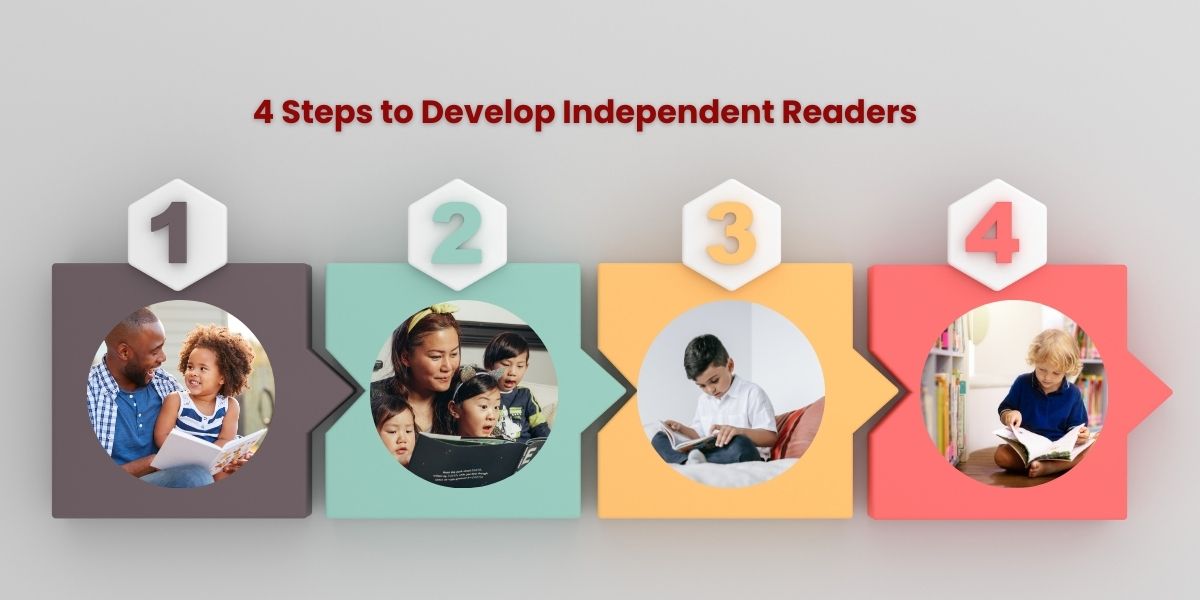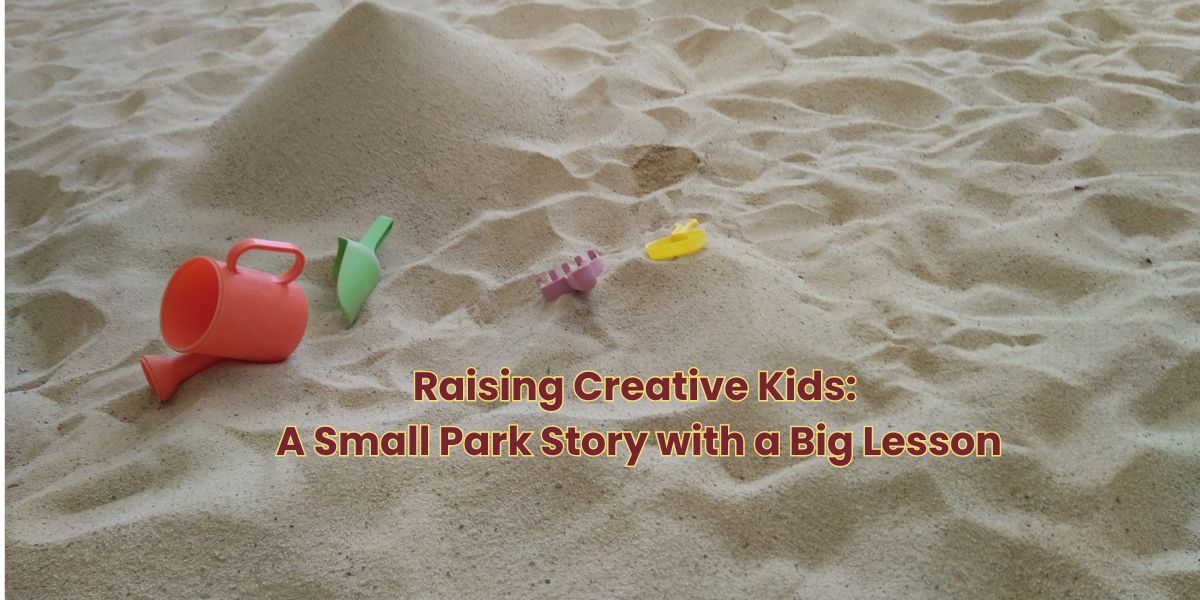
4 Steps to Develop Independent Readers
4 Steps to Develop Independent Readers
In the previous blog, we talked about the benefits of reading aloud. While reading aloud has immense advantages, it does have a flip side—children may become dependent on parents to read to them. They often say, “Please read this to me!”
Should you worry about this? Not at all. In this blog, let’s explore how we can encourage children to become independent readers.
Children can learn to read on their own if nurtured the right way. As parents, we often wonder: Should we teach them phonics, sight words, or how to read step-by-step?
In my humble opinion, this approach can be long and tedious. If parents take on the role of teaching reading in a technical way, it often feels like a task—for both the parent and the child. Reading then becomes a chore rather than a joyful experience.
Associating Joy with Reading
It’s important for parents to associate reading with joy, especially in the early years. Don’t stress about the technicalities of reading skills. Schools are equipped to teach phonics and other methods, and children will learn alongside their peers.
So, if schools handle reading skills, should parents invest time in reading?
Absolutely! It’s vital to read to your children.
While schools focus on step-by-step reading skills starting around ages 4 or 5, if children enter school without reading readiness, they may view reading as homework or a task rather than something enjoyable.
If you want your child to love books, you play a major role. As parents, it’s your responsibility to make reading fun and engaging. Simply read to them! Don’t worry if they’re not reading or recognizing words yet. Just keep reading.
With consistent exposure, they’ll build vocabulary, comprehension, and a love for books. If you follow a structured process, your child may start reading sentences and stories naturally, without needing extensive phonics training.
The Magical 4-Step Process to Develop Reading Skills
Here are four simple steps to raise confident, independent readers:
1. Start Reading Early
Begin reading to your child as early as possible—ideally during pregnancy! When babies hear your voice in the womb, it creates a special bond. Stories like Abhimanyu learning strategy in the womb or Prahlad hearing devotional tales from his mother remind us how early storytelling impacts children.
When your baby is born, their sense of hearing is already active. Make reading aloud a daily habit, just like eating or sleeping. This builds a sense of belonging to books.
Initially, children may not seem to listen or sit still. They might play, wander, or explore while you read. That’s okay—they’re still absorbing your words. Continue reading aloud until they’re around 2 years old, when they’ll start to show interest in sitting with you and engaging with books.
Once they’re ready, involve them actively:
- Let them turn pages.
- Ask them to point to familiar words.
- Encourage them to read simple, repetitive phrases like “The End.”
2. Be Their Reading Partner
As your child starts school and learns letters and sounds, they’ll begin recognizing words and understanding the reading process. Now it’s time for you to step back slightly and let them take the lead.
Encourage them to read aloud, but provide support when they encounter difficult words or feel tired.
Avoid pressuring them to sound out every word phonetically. Our goal is to foster a love for reading, not to create stress. Celebrate their efforts and keep the experience positive and encouraging.
3. Create Reading Opportunities
Expose your child to different types of books—picture books, storybooks, and even books with simple text. Build a small home library or visit your local library regularly.
Set aside a dedicated “reading time” every day when you and your child can explore books together. Make this time special and free from distractions like screens or chores.
Remember, the more books your child is exposed to, the more they’ll naturally develop curiosity and a habit of reading.
4. Encourage Independent Reading Gradually
Once your child feels confident enough, encourage them to read short books or favorite stories on their own. Start with books they’re already familiar with from your read-aloud sessions.
Praise their efforts and gently correct mistakes without making them feel discouraged.
Gradually, you’ll see your child reading entire books independently. They’ll master the art of reading and develop a lifelong love for it.
If you’re interested in learning more about raising readers, check out my book at the link below!
When we developed our online reading courses, we considered that not all parents might have time to read aloud regularly, and that schools may not always emphasize phonics effectively. Our course is designed to teach reading skills while instilling a love for books.



